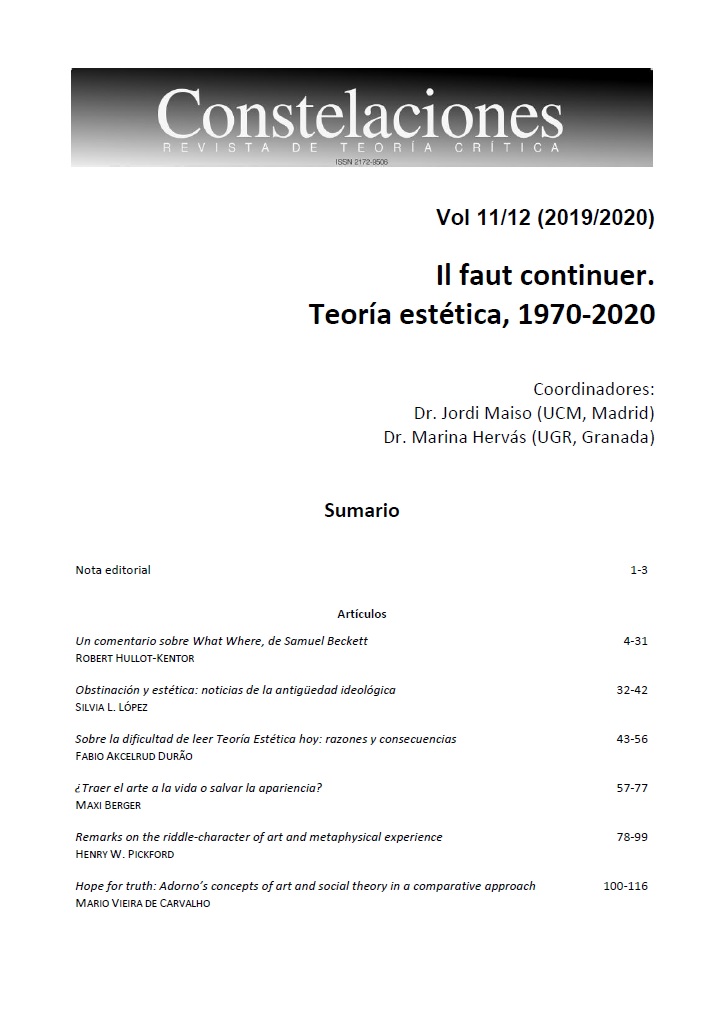Promise and Negativity
Keywords:
Aesthetic Theory, promise of happyness, negativity, Theodor W. Adorno, ArtAbstract
This article explores the definition of art as a broken promise of happiness, as it was offered by Theodor W. Adorno in his Aesthetic Theory. My general claim is that Adorno’s definition of art brings together in a novel manner two apparently conflicting aesthetic determinations of artistic phenomena: on the one hand, on the shadow of the Hegelian tradition, art is considered in its negative character; on the other hand, along the lines of a famous statement from Stendhal, art harbors a promise of happiness. On this basis, I intend to show the tension arising from the combination of an aesthetics of negativity, which stems from Hegel’s determined negativity, and an aesthetics of the promise whose main focus is the logic of fulfillment. I will also state that Adorno’s notion of art not only allows to glimpse at a connection which is barely noticed in other different conceptions of art, but also, when the tension is further developed, sheds light on certain ambivalent presuppositions, which directly concern human praxis itself.
Downloads
Downloads
Published
How to Cite
Issue
Section
License
Authors who have publications with this journal accept the following terms:
1. Authors will retain their copyright and grant the journal the right of first publication of their work, which will be simultaneously subject to the License of recognition of Creative Commons CC BY-NC-SA 4.0 that allows third parties to share, redistribute and adapt the work provided it is for non-commercial purposes and its author and first publication in this journal is indicated.
2. Authors may adopt other non-exclusive distribution license agreements for the version of the published work (e.g., depositing it in an institutional electronic archive or publishing it in a monographic volume) provided that the initial publication in this journal is indicated.
3. Authors are permitted and encouraged to disseminate their work via the Internet (e.g., in institutional telematic archives or on their website) before and during the submission process, which can produce interesting exchanges and increase citations of the published work. (See The Effect of Open Access).
Data confidentiality
1. Constelaciones. Revista de Teoría Crítica guarantees that the data you send us will only be used to meet the requests made in this message.
2. Your data will not be passed on to third parties.
3. You may request that your data be removed from our records at any time.





